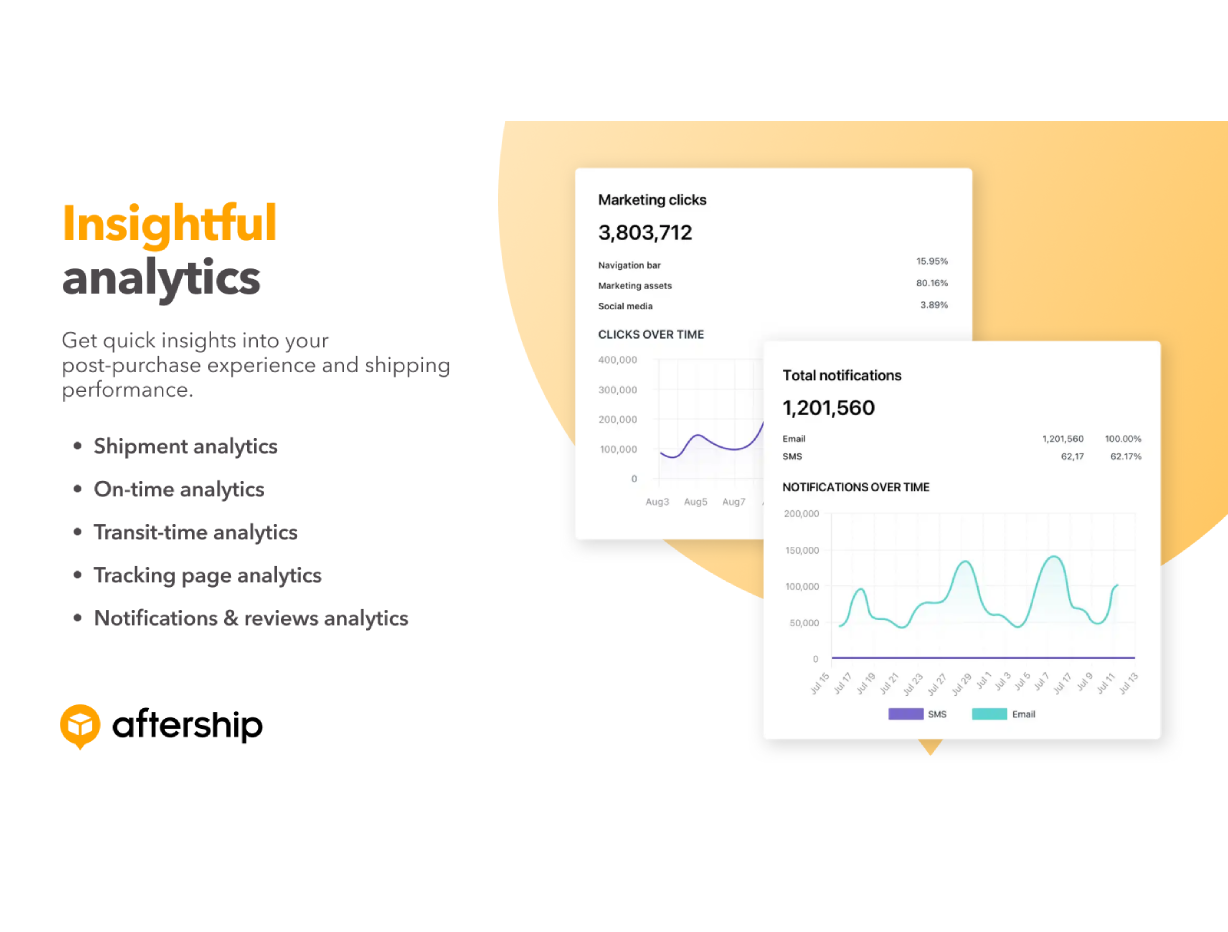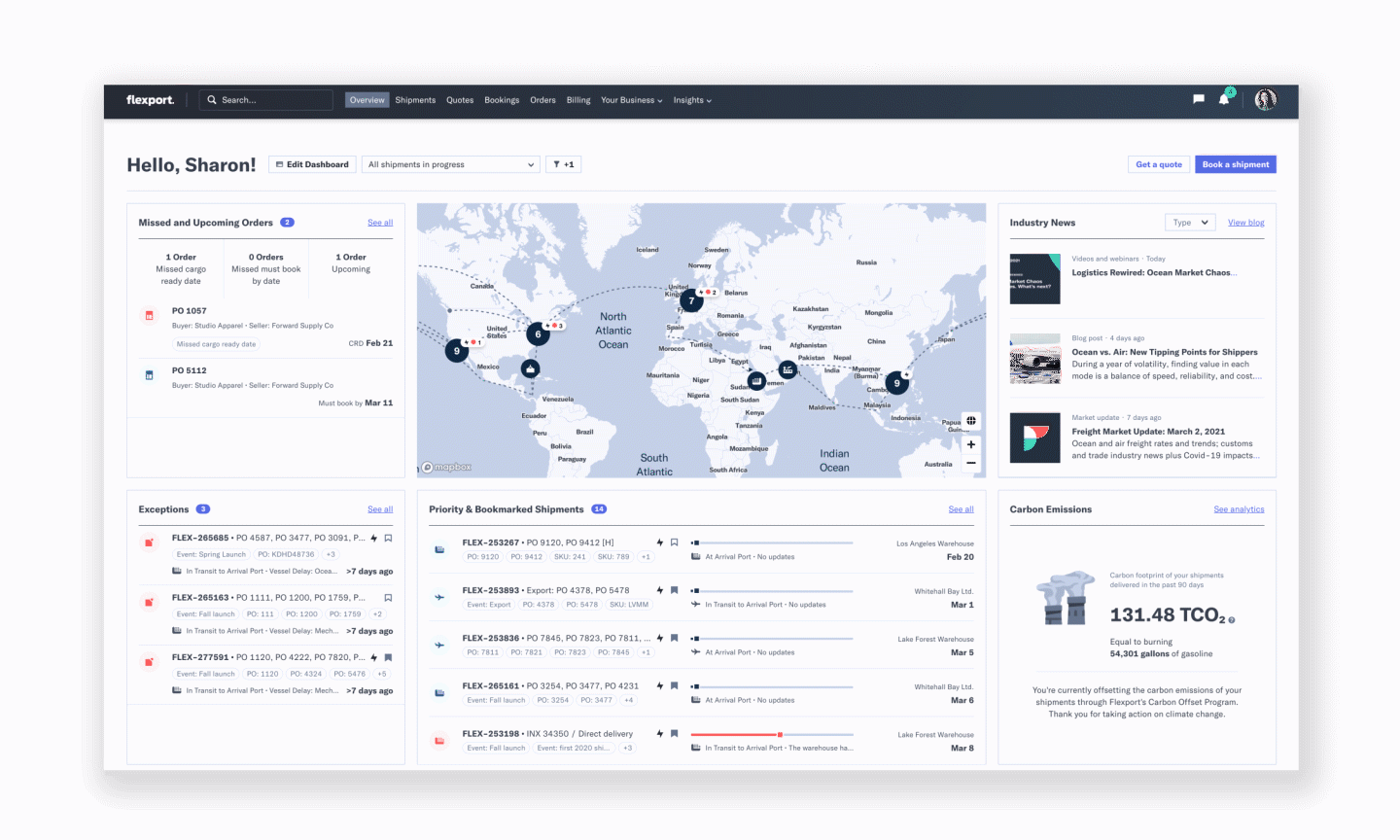Alternatives to Delhivery AI Platform
1. AfterShip Tracking & Analytics
+Pros
- Comprehensive carrier coverage (1,212+ carriers)
- AI-powered delivery predictions using 4.4 billion shipment data points
- 99.99%+ API uptime
-Cons
- Pricing model instability
- Feature access constraints at lower pricing tiers
One highlighted feature and why it's amazing
Provides unified visibility across 1,212+ global carriers with 50+ added monthly .

Another highlighted feature of why it’s amazing
Leverage 4.4 billion shipment data points to deliver hour-level estimated delivery dates using multivariate analysis .
2. Easyship
+Pros
- International shipping complexity reduction through automated tax/duty calculations across 220+ countries
- Integration with 100+ carriers providing extensive shipping options
- Implementation simplicity with 1-3 day deployment timelines
-Cons
- Lack of physical fulfillment infrastructure and advanced AI capabilities found in comprehensive fulfillment solutions
- Dependency on third-party carriers for service reliability
One highlighted feature and why it's amazing
Automated carrier selection through real-time rate comparisons across 100+ integrated carriers .

Another highlighted feature of why it’s amazing
Automated tax and duty calculations plus customs documentation across 220+ countries .
3. Flexport Platform
+Pros
- Unified logistics visibility across freight, fulfillment, and analytics operations.
- AI-powered automation with 95% accuracy in customs documentation processing.
- Rapid integration capabilities with 24-hour Shopify activation.
-Cons
- Platform reliability concerns based on customer feedback.
- Data dependency requirements include 12-24 months of historical data for full AI accuracy.
One highlighted feature and why it's amazing
Enables natural language logistics queries, allowing users to request complex data analysis through conversational commands like 'Show costliest Q3 lanes' and receive instant dashboard generation.

Another highlighted feature of why it’s amazing
Automate carrier communications and trucker coordination, reducing manual coordination bottlenecks.
Other Alternatives
GEODIS Solutions
ShipBob
ShipStation
How We Researched This Guide
About This Guide: This comprehensive analysis is based on extensive competitive intelligence and real-world implementation data from leading AI vendors. StayModern updates this guide quarterly to reflect market developments and vendor performance changes.
211+ verified sources per analysis including official documentation, customer reviews, analyst reports, and industry publications.
- • Vendor documentation & whitepapers
- • Customer testimonials & case studies
- • Third-party analyst assessments
- • Industry benchmarking reports
Standardized assessment framework across 8 key dimensions for objective comparison.
- • Technology capabilities & architecture
- • Market position & customer evidence
- • Implementation experience & support
- • Pricing value & competitive position
Research is refreshed every 90 days to capture market changes and new vendor capabilities.
- • New product releases & features
- • Market positioning changes
- • Customer feedback integration
- • Competitive landscape shifts
Every claim is source-linked with direct citations to original materials for verification.
- • Clickable citation links
- • Original source attribution
- • Date stamps for currency
- • Quality score validation
Analysis follows systematic research protocols with consistent evaluation frameworks.
- • Standardized assessment criteria
- • Multi-source verification process
- • Consistent evaluation methodology
- • Quality assurance protocols
Buyer-focused analysis with transparent methodology and factual accuracy commitment.
- • Objective comparative analysis
- • Transparent research methodology
- • Factual accuracy commitment
- • Continuous quality improvement
Quality Commitment: If you find any inaccuracies in our analysis on this page, please contact us at research@staymodern.ai. We're committed to maintaining the highest standards of research integrity and will investigate and correct any issues promptly.